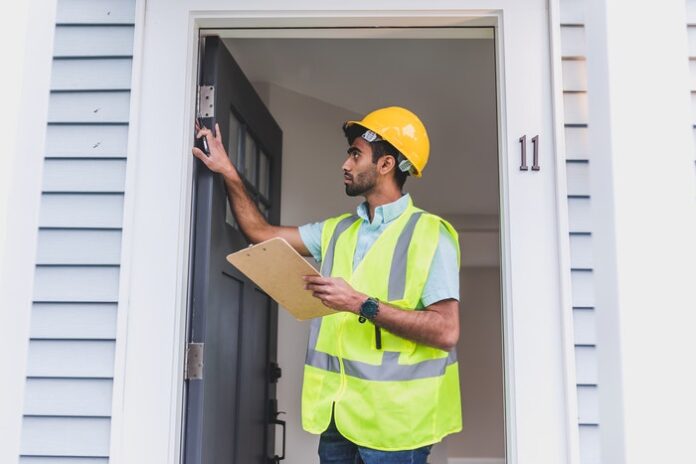Most people do not think about their homes’ energy usages until the electric bills come in, at which point they decide whether to pay the high cost or try to cut back on their energy consumption.
That is why an energy audit is so helpful. An energy audit looks at your home or business as a whole to see where you make changes that result in lower energy usage and therefore lower bills.
Energy Audits Are Good Ways to Save Money
Energy audits test your home for any potential inefficiency that drains your bank account. By identifying issues, such as drafty windows, leaking pipes, or untapped insulation, you save money monthly on both heating and cooling costs.
In fact, audits uncover hundreds — if not thousands — of dollars in savings over a single year. Given how inexpensive they are (on average they run between $300-400), absolutely make an energy audit part of your overall financial strategy.
Energy Audits Show What Changes Increase Your Home Value
Getting a home energy audit is a cost-effective way to determine where your energy dollars go. If you sell your home in a few years, doing a free or low-cost audit is very beneficial.
An energy auditor comes to your house and gives you a detailed analysis of your home’s current usage. In addition, he/she gives estimates on how much money you save by making simple changes. Those savings make it easier for potential buyers to choose your home over other properties without as many improvements.
Energy Audits Take 3 to 4 Hours, but Make Huge Impacts
Most energy audits include a walk-through of your house to check for leaks in places like your attic, walls, and windows. In addition, they examine appliances, such as furnaces, air conditioners, water heaters, and more. After getting a list of recommended fixes from your auditor, act fast. You save hundreds on energy bills down the road.
How Do I Get My Building Certified?
LEED certification requires your familiarity with two major categories: project design (pre-construction), and operation and maintenance (which falls under operations).
The pre-construction category (required for a building to become LEED certified) includes requirements in five areas: site selection, water efficiency, energy efficiency, materials selection, and indoor environmental quality.
From there, it is your job to complete a pre-application package. Gather all relevant information about your building project so you qualify for LEED certification before construction begins.
This information consists of approximately 30 pages worth of documentation. These pages include multiple questionnaires — submitted within 90 days after construction is complete.
When Should I Get an Energy Audit?
One of the first steps to lower your energy bills is knowing where you are right now. Speaking to Simply Switch, an energy audit determines how much energy you use, why you use it, and how you tweak things to save money. Many local governments offer incentives for undergoing audits as ways to encourage residents to make more sustainable choices.
Depending on your utility company, they also offer some relief on your bill if you take their advice on improving efficiency.
How Much Does an Energy Audit Cost?
An energy audit is a comprehensive inspection of your home’s or business’s insulation, heating/cooling system, windows, plumbing, appliances, and lighting to find spots for improvement.
The price varies depending on a number of factors. One primary factor is whether you hire someone to conduct it for you or if you do it yourself.
When hiring a professional energy auditor, costs range from $300 to $2,000 depending on how comprehensive his/her report is. Conducting your own audit obviously costs less — around $100–$300 — but it lacks the results or recommendations provided by a professional.
What Happens During the Energy Audit?
An energy audit is simply a review of your home to determine how efficiently it uses energy. A professional, such as an HVAC technician or Home Performance Contractor, usually completes the audit. These experts identify where problems are in your home, then develop solutions so that you can make changes.
The goal of an energy audit is showing you ways to use less energy while maintaining comfort. This ultimately saves you money in utility bills.
Some audits take only minutes to complete, while others require several hours, depending on your situation and how thorough you want them to be. Different types of audits may be more useful for different homes, so it’s good to know what each one entails before proceeding with one in particular
How to Choose a Qualified Energy Auditor
An energy audit is a great first step towards reducing your utility bills and improving your home’s energy efficiency. Not all auditors are equal in creation, however.
Here are a few ways to tell you hired a qualified professional:
- The company has at least 10 years of experience in home audits.
- Auditor completed dozens of audits in your area.
- They offer both computerized and manual calculations.
- Cost does not exceed $1,500 for services performed by qualified individuals.
Write for clarification. An effective energy audit is detailed enough to provide solutions, but clear enough to understand exactly what those solutions are. That means the energy audit has jargon-free information that is not too simplistic or too technical.
Find a Home-Based Business to Start-Up >>> Hundreds of Business Listings.















































